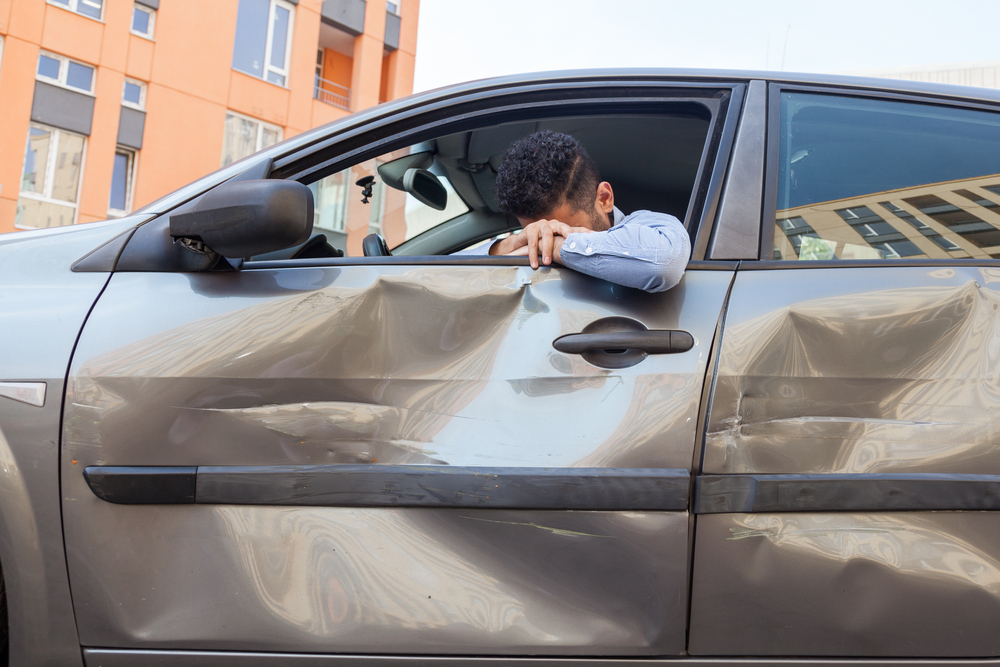How to Navigate Insurance Claims After a Hit-and-Run in Georgia
Dealing with a hit-and-run can feel overwhelming. One moment, you’re driving peacefully; the next, you’re facing the chaos of an accident where the other driver has fled. If this happens to you in Georgia, follow these steps to handle what to do after a hit-and-run, including how to deal with your auto insurance company, and understand what coverage can protect you.
Navigating the Chaos of a Hit-and-Run in Georgia
Most people — and most likely you as well — aren’t exactly feeling too great and just don’t know what to do after a hit-and-run. If you’ve found yourself in this situation, the first step is to take a deep breath and stay calm and collected. Here are some of the steps you should take immediately after the fact, including how to file an insurance claim after a hit-and-run accident.
The Immediate Aftermath: Steps to Take Right Away
What to do after a hit-and-run? Stay calm and follow these steps immediately:
- Check for Injuries: Ensure you and your passengers are okay. Call 911 if anyone needs medical attention.
- Stay at the Scene: Don’t chase the other driver. Park safely and remain at the scene.
- Gather Information: Note details about the other car, like make, model, color, and license plate. Snap photos of the damage and the scene.
- Call the Police: Report the incident. A police report is crucial for your insurance claim.
- Look for Witnesses: If anyone saw the accident, get their contact details. Their statements can support your claim.
Georgia’s Legal Stance on Hit-and-Runs
Georgia takes hit-and-runs seriously. Offenders face heavy fines and possible jail time. Reporting the incident helps enforce these laws and supports your insurance claim.
Georgia’s hit-and-run accident laws aim to deter drivers from fleeing the scene. Under Georgia law, drivers involved in an accident must stop, provide their information, and help any injured parties. Failing to do so can result in criminal charges, including fines and imprisonment.
For victims, the police report serves as an essential document for filing an insurance claim and can also aid in legal proceedings if the perpetrator is caught.
Building Your Case for an Insurance Claim
Like any good legal case, you need evidence — real, tangible evidence. And, of course, a paper trail. Here’s the scoop.
Gathering Bulletproof Evidence
To strengthen your claim, gather as much evidence as possible:
- Police Report: Obtain a copy of this vital document.
- Photos and Videos: Capture visual evidence of the scene and your car’s damage.
- Witness Statements: Collect written or recorded statements from any witnesses.
Understanding Your Coverage: Pitfalls and Protections
Know what your policy covers. Key types of auto coverage that protect you in a hit-and-run include:
- Uninsured Motorist Coverage: Covers your expenses if the other driver is unidentified or uninsured.
- Collision Coverage: Pays for repairs to your car, regardless of fault.
Uninsured Motorist (UM) coverage is especially important in hit-and-run cases. This type of coverage can compensate you for medical expenses, lost wages, and other damages if the at-fault driver cannot be identified or does not have insurance. UM is typically inexpensive, making it well worth the few additional dollars a month on your premium.
Collision coverage, on the other hand, helps pay for repairs to your vehicle, ensuring you’re not out of pocket for damages caused by the accident.

Deadlines and Legal Nuances in Georgia
Of course, every state has its own statutes of limitations when it comes to certain types of property damage crimes. Georgia is no exception to the rule. Here’s how to file an insurance claim after a hit-and-run.
Statute of Limitations: Timing Is Everything
In Georgia, you have limited time to file an insurance claim or lawsuit after a hit-and-run. File a personal injury claim within two years and a property damage claim within four years of the accident. Act quickly to protect your rights.
The statute of limitations ensures that claims are filed within a reasonable time frame, preserving evidence and witness testimonies. Failing to file within these time limits can result in losing your right to compensation. It’s crucial to start the claims process as soon as possible to avoid missing these critical deadlines.
When Lawsuits Become Necessary: Exploring Legal Action
If you identify the hit-and-run driver and need to sue for damages, consult a lawyer who specializes in what to do about car accidents in Georgia. Legal action might be necessary if the insurance settlement doesn’t cover all your expenses or if the driver at fault is found and you need to seek additional damages. An experienced attorney can help navigate the complexities of the legal system, ensuring you receive fair compensation for your losses.
Financial Recovery Post Hit-and-Run
The question that’s usually top of mind for anyone who has been through one of these incidents is this: How much money can I recover for my case?
Calculating Damages: How Much Can You Recover?
The amount you can recover will depend on your damages and insurance policy. This includes medical bills, car repairs, and other related expenses.
Calculating damages involves considering both economic and non-economic losses. Economic damages include tangible expenses like medical bills, vehicle repairs, and lost wages. Non-economic damages cover pain and suffering, emotional distress, and loss of enjoyment of life. Accurately documenting all your losses will help maximize your claim.
Managing Claims for Uninsured Motorists
Because Georgia is an at-fault state, uninsured Motorist (UM) coverage can be a lifesaver in hit-and-run situations. It steps in when the at-fault driver doesn’t have insurance or when the driver cannot be identified. This coverage can pay for medical expenses, lost wages, and other costs, providing a financial cushion during a difficult time.
Protect Yourself in the Case of a Hit-and-Run
Having the right insurance coverage makes all the difference in a Georgia hit-and-run accident. For affordable and reliable auto insurance in Georgia, check out Velox Insurance. With the right steps and coverage, you can protect yourself and get back on the road with confidence. We’re here to help make that happen!
To get started with your own customized policy, give us a call today at (855) 468-3569, request a quote online, or visit your local Velox office in your neck of the woods in Georgia to speak with our friendly agents.
FAQs: Hit-and-Run Claims
Some of the most common questions around these types of cases in Georgia include:
Will My Insurance Rates Increase After a Hit-And-Run Claim in Georgia?
Your premiums might increase after filing a hit-and-run claim, but this varies by insurer and your policy terms. It’s worth checking your policy details or speaking with your agent.
What if the Driver Responsible for the Hit-And-Run Is Never Found?
If authorities can’t locate the driver, rely on your UM or collision coverage to pay for damages. This highlights the importance of having the right coverage — it protects you in situations where the other driver can’t be held accountable.
What if the Hit-And-Run Driver Is Identified After the Insurance Claim?
If the hit-and-run driver is eventually identified, your insurance company may subrogate the claim, meaning they’ll seek reimbursement from the at-fault driver’s insurance. This can potentially recover the costs paid out for your claim and, in some cases, might even result in a refund of your deductible.



